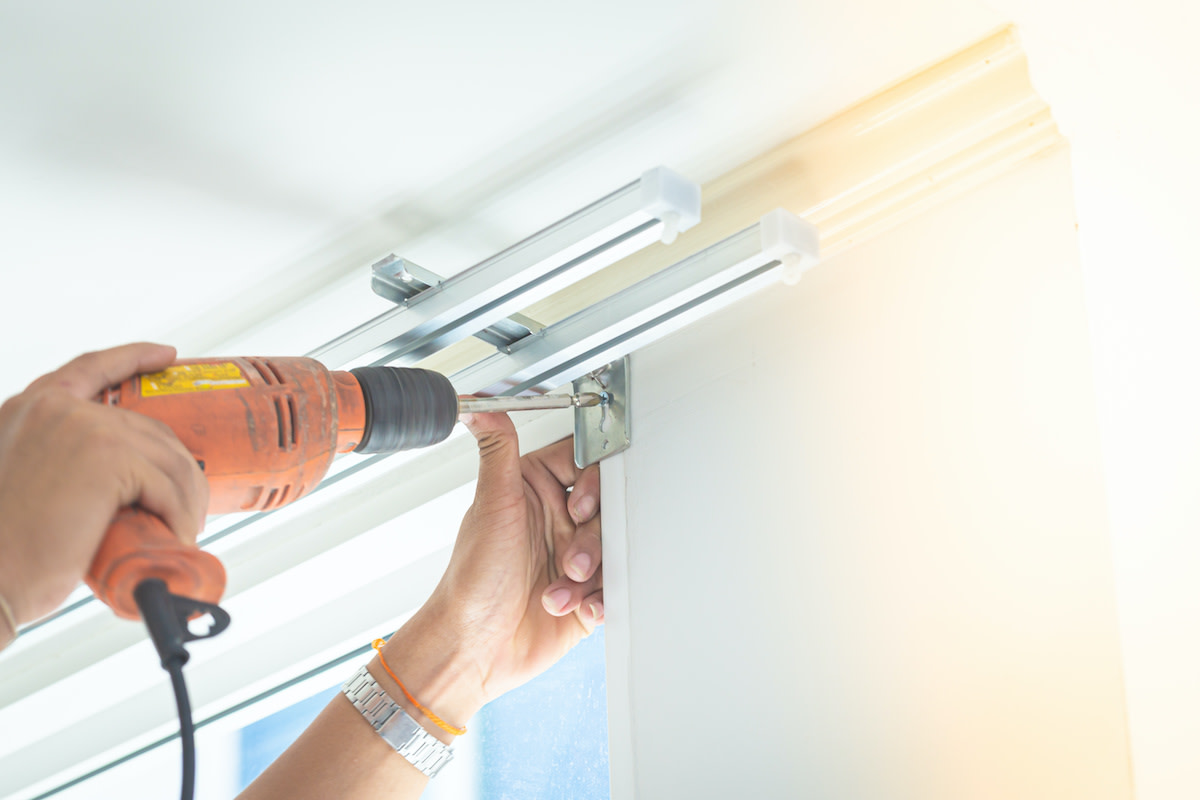How to Hang Curtains: A Step-by-Step Guide
Written by MasterClass
Last updated: Oct 26, 2021 • 4 min read
Hanging curtains is one of many home improvement DIY projects a homeowner can undertake, and with the right tools and methods, the simple task can bring color and style into any interior space. Learn how to choose and hang curtains.
Learn From the Best
What Are Hanging Curtains?
Hanging curtains are any form of drapery that covers the width of the window or window frame. You can hang curtains from a curtain rod installed in the framing above the top of a window. For full coverage, the fabric should extend past each side of the window. Other names for separate sheets of drapery include curtain panels.
Hanging curtains are both functional and decorative, as they contribute to a room’s decor in addition to blocking light. An interior designer might select window treatments that add to their client’s intended aesthetic while also serving the desired practical purpose. Just as various details on coffee tables can create different vibes in a living room, so too can the grommets, finials, or rod brackets for curtains. You or your interior designer can select curtains that complement a wall’s paint colors or certain home decor themes.
4 Tips for Hanging Curtains
Hanging curtains can be a relatively straightforward process provided you do some crucial planning ahead of time. Here are a few tips that can help you ultimately achieve the results you want:
- 1. Consider the material’s opacity. It’s a good idea to decide whether you want curtains that will black out any and all exterior light in a room (such as with blackout curtains) or just some of the light.
- 2. Determine rod placement with care. Rod placement can be the most challenging aspect of hanging curtains for the average DIY designer. You need to place the rod level, plumb, and at the proper height for your curtain to cover the top of the window. Certain curtain designs can change the required height of rod installation. For instance, a curtain with a rod pocket requires a lower installation than a curtain that will hang from curtain rings. Being off by even an inch could create a gap that allows light to pour into the room above the panels.
- 3. Ensure adequate fabric drape. The curtain length and width should adequately cover every side of your window, although there are different types of curtains and styles. When you’re taking measurements, keep in mind that you will want enough extra fabric to allow for some gathering. Long curtains should exceed the dimensions of the trim but not drag on the floor. Buying curtains that are too narrow or too short can be a frustrating and costly mistake.
- 4. Measure precisely for roman shades. Unlike traditional hanging curtains, roman shades—which you raise or lower vertically—consist of fabric cut to fit a window’s exact dimensions. For roman shades that hang inside the window trim in pleat folds, you can match the interior dimensions of the trim.
How to Hang Curtains
You can eliminate some common mistakes in hanging curtains by following these simple steps and time-saving hacks.
- 1. Measure your windows. You must know the measurements of your windows to find the right length and width for your panels. Make your own DIY curtains or find ready-made ones that will completely cover the window and also look aesthetically pleasing with the height of the ceiling in your room. Curtains that are too small or short might make your ceilings appear lower than they are, while curtains that are too long will bunch up on the floor and collect dust and debris.
- 2. Decide where to attach the rod brackets. Determine whether you want to install the rod brackets to your framing or your drywall. If you are installing heavier hardware, you can ensure a secure installation by screwing your brackets to the framing elements of the wall. Find wall studs by using a stud finder tool and lightly mark the exact spot on the framing surface.
- 3. Draw a template before you drill. Use a tape measure, level, and pencil to draw out a template before you do any drilling. Creating a visual plan before you drill will make it easy to hang your curtain rod at the correct height and ensure both ends are level. Inaccurate templates can result in multiple drilled holes that you will need to repair and paint over.
- 4. Drill holes for the rod brackets. Save cleanup time by taping an open envelope below your drilling locations to catch any drywall dust or sawdust from the stud from landing on your floors. Use a drill bit slightly smaller than the securing screws and the drill holes to ensure a straight and accurate entry into the stud face. If you are having trouble finding studs that will accommodate your curtain rod, you can instead choose to secure the brackets directly into the drywall using wall anchors (available at any hardware store).
- 5. Secure the brackets and hang your curtains. You can use a screwdriver or an impact drill on a lower setting to secure the brackets to the wall. You should fasten the hardware to create a stable installation that children or pets can’t easily undo, but the installation should not be so overly tight as to damage the surrounding drywall.
Ready to Give Your Space a Chic Update?
Master everything from color theory to pattern mixing with the MasterClass Annual Membership and exclusive lessons from award-winning interior designers like Corey Damen Jenkins and Kelly Wearstler. From shopping for statement furniture to designing a lighting scheme to choosing the newest member of your plant family, the skills you’ll pick up are sure to make your house, apartment, or condo feel even more like a home.
